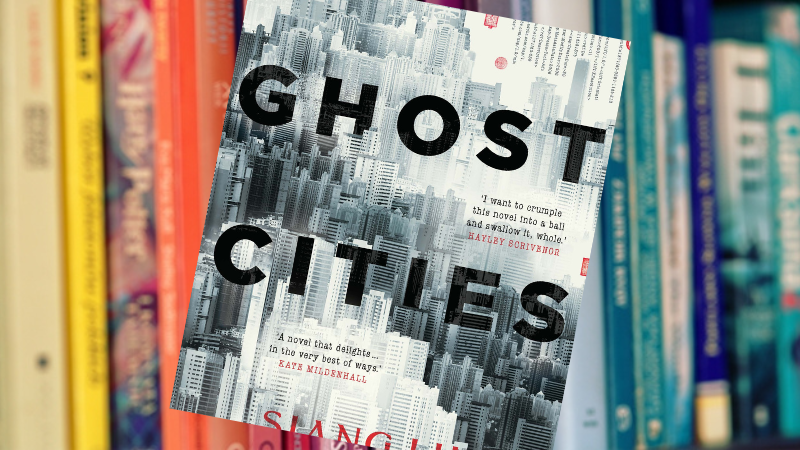Ghost Cities
By Siang Lu
University of Queensland Press
In 2008, I went on a boat trip down the Yangtze River in China with the endpoint being an inspection of the Three Gorges Reservoir that the Chinese tour guides were very proud of. As we drew near to the dam, they pointed out the where land and islands had been flooded after the construction submerged 1,680 villages, 114 towns and 2 cities.
We could also see the high rise apartments that had been built above the new waterline and I wondered how the displaced people, many subsistence farmers and country landowners, would like living in these apartments. Then I heard that China has about fifty ghost cities that have everything except inhabitants.
Siang Lu uses one of these cities – built for many and populated by a few – as one of the settings for his novel, which also reaches back into the past for a parallel narrative about an infamous Indomitable Emperor of the Jin Dynasty, Whuang Du.
Australian man Xiang Lu is offered a job in one of these ghost cities after becoming an internet sensation for being fired from his job as a translator at the Chinese Consulate in Sydney. Despite his Chinese name, Xiang speaks no Chinese and used Google Translate to do his work – becoming #BadChinese.

It is Chinese film director Baby Bao who offers Xiang the job while he is at the Sydney Film Festival as he thinks #BadChinese will be a huge draw card for his new film. The Director has turned one of the Chinese ghost cities into the world’s largest film set and Xiang finds himself half a world away in Port Man Tou.
The wardrobe department has been relocated to the shopping mall as clothing stores, on-site catering has been moved to restaurants and cameras and microphones are everywhere in this dystopian city where everyone is just acting.
Although separated by centuries, the two storylines have commonalities and both the Indomitable Emperor and The Director are controlling and all-powerful. Despite being a pawn of The Director, Xiang manages to construct his own story, as does Wuer, the Emperor’s concubine.
How is Xiang’s relocation to the ghost city connected to a parallel odyssey in which an ancient Emperor creates a thousand doubles of Himself? What does the tale in which every book in the known Empire is destroyed – then re-created, page by page and book by book, all in the name of love and art tell us about our modern world?
Lezly Herbert





